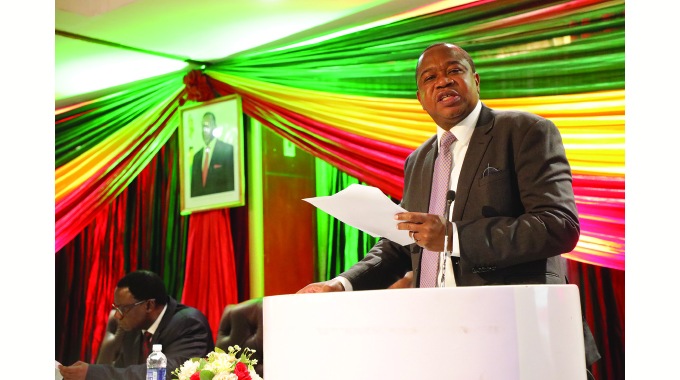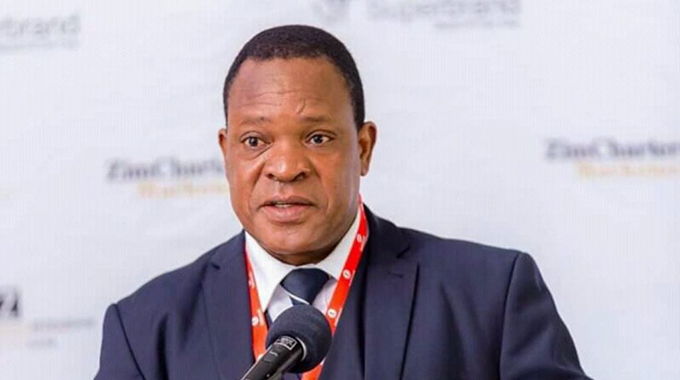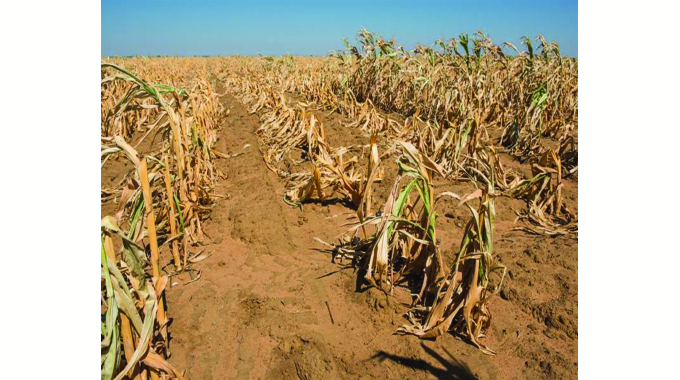Zim working to resolve deadlock with creditors

Oliver Kazunga
Senior Business Reporter
THE Government is committed to resolving the long-standing “impasse” with its creditors and the international community, which is vital in transforming Zimbabwe into an upper middle-income economy by 2030.
President Mnangagwa said this in a speech read on his behalf by Finance and Economic Development Minister Professor Mthuli Ncube at the inaugural structured dialogue platform on Zimbabwe’s Arrears Clearance and Debt Resolution Process in Harare yesterday.
For close to two decades, Zimbabwe has been isolated from the international community following the successful Land Reform Programme the Government embarked on in 2000.
The coming into power of the Second Republic under President Mnangagwa’s administration in November 2017, has seen the country embarking on an international engagement and re-engagement drive to improve the relations with the global village.
The Government has also been implementing a cocktail of economic and governance reforms as well as devising and implementing an Arrears Clearance and Debt Resolution Strategy.
In the 2023 National Budget Statement presented on Thursday last week, Prof Ncube indicated that the country’s external debt presently stands at US$14 billion.
Zimbabwe owes African Development Bank, the World Bank and the European Investment Bank. President Mnangagwa said the inaugural structured dialogue platform meeting marked the beginning of an important national process for Zimbabwe, which went through trying times over the last 22 years.
“One of the key lessons we have learned over the years is the importance of dialogue to resolve differences.
“It is against this background that we are here today, to pursue dialogue as a way of resolving the long-standing impasse between Zimbabwe, its creditors and the international community.
“As the President of Zimbabwe, I am committed to finding a lasting solution to this impasse, as this is crucial for the country to achieve our Vision 2030 of becoming an upper middle-income country by 2030,” he said.
Zimbabwe seeks to achieve an upper middle-income society by 2030 and the Government is already implementing programmes under the National Development Strategy 1 (NDS 1), a five-year economic blueprint that charts policies focused on transforming and growing the economy.
NDS 1, which runs between 2021 and 2025, will be superseded by NDS 2, another five-year economic development programme expected to accelerate economic growth and development to an upper middle-income economy riding on the achievements of NDS 1.
“We have done a lot in terms of shaping and implementing multi- facetted and credible policies. When we look at such factors as the ‘what, where, when, and how’ of our actions, we may not necessarily have always gotten the ‘how’ right, but this is where lessons learned come in.
“Land reform, for example, has been a hotly contested issue surrounding Zimbabwe. We have been pursuing ways to satisfactorily remedy concerns around land reform, while ensuring that the interest of our people remains a priority,” said the President.
He said the Government continued to implement credible economic policy reforms, which are setting the country on a sustained inclusive economic growth trajectory.
President Mnangagwa said the Government hopes this will find positive responses with a wide range of stakeholders including Zimbabweans, the country’s creditors and potential investors considering Zimbabwe as an investment destination or a place to reside.
“As part of our broad strategy of reengagement with the international community, we are already implementing economic and governance reforms, which I believe are necessary and critical to the process we have embarked on.
“I am committed to compensating former farmers under the Global Compensation Deed. I am happy to announce that the former farm owners recently accepted my Government’s offer to settle the Global Compensation Deed amount.
“This compensation process will commence in early 2023,” he said, adding that there is also the pending settlement of farms under Bilateral Investment Promotion Partnership Agreements (BIPPAs).
“These farmers were regrettably affected by the Land Reform programme. The BIPPAs are being resolved on a case-by-case basis led by the Ministry of Foreign Affairs and International Trade.
“We believe this is a strong signal of my Government’s commitment to respecting property rights and to mitigating any concerns that foreign investors might have.”
Early last month, during the Africa Investment Forum in Abidjan, President Mnangagwa said together with AfDB president Dr Akinwumi Adesina who is also the champion for Zimbabwe’s debt clearance and resolution strategy, they announced the appointment of a high-level facilitator -former Mozambique President Joachim Chissano.
Mr Chissano will be supported by a technical advisor, the former Mozambique Prime Minister Madame Luísa Diogo.
“He will also play an important facilitative role between the Zimbabwean Government as debtor, bilateral credit partners and other relevant stakeholders. This initiative is one devoid of politics. It is a national initiative that concerns all Zimbabweans.
“The deliberations today will essentially cover economic and governance reforms, and provide recommendations that will inform subsequent higher-level discussions,” said President Mnangagwa.
Mr Chissano is expected to visit the country in due course and yesterday’s inaugural structured dialogue platform will be a precursor to his active participation and entry into the process.
The President said he was also most appreciative of the steps being taken by international partners to support Zimbabwe and the President has welcomed the recent assessment visit by Commonwealth Assistant Secretary-General Luis Franceschi-the third Commonwealth assessment visit since 2019.
The has noted that the country had made impressive progress in aligning its Constitution with the Commonwealth Charter.
President Mnangagwa also quoted the Commonwealth Assistant Secretary General as having said: “The conclusion we got from everybody that we met is yes, Zimbabwe and the people of Zimbabwe want to be part of the Commonwealth and family of 56 nations.”
Zimbabwe is seeking readmission into the Commonwealth family which comprises 56 nations.
“But we also want to be a member of the broader international family of nations as well, free of the political and economic barriers that have limited our progress these past 22 years.
“The genesis of today’s gathering goes back a few months, when at my request, AfDB president Dr Adesina, agreed and committed to work with other institutions to support our government in clearing its arrears and resolving its debts owed to international creditors-including to the African Development Bank, the World Bank Group and the European Investment Bank.
“The choice of Dr Adesina as our champion was simple, given that the African Development Bank is our continent’s premier development bank and one of our most trusted partners,” he said.
In July this year, Dr Adesina and his team from the regional financier visited Zimbabwe where he made an initial assessment prior to a follow-up visit by two of the bank group’s vice presidents a few weeks later.
“They also made broad consultations. After talking with other development partners and recognizing that various economic and governance factors drive Zimbabwe’s arrears clearance and debt resolution process, Dr Adesina proposed a focused strategy that is in line with our own Arrears Clearance and Debt Resolution Strategy.
“As a starting point, we have agreed on a focused approach around three pillars, namely: an economic reforms track; a governance reforms track; and compensation to the former farm owners,” said President Mnangagwa.










Comments